How is Marxism eroding the West today?
I grew up and studied in the USSR - this is my take on the cultural erosion of the West by Marxist ideology
I’ve been planning to write up a more detailed account of my insights on Marxism and its resurgence in the US for a while. I don’t usually post anything remotely political (this is actually more like socio-economic commentary) in Headspace. Marxism is the one exception I make as someone who is:
a) Deeply concerned about its eroding effect in the US.
b) Has both experiential and professional expertise in the matter.
Thirty years ago on Christmas eve, the USSR was dissolved. A Christmas miracle. It came as a shock to most both inside and outside the country. I was one of those who saw it collapse from inside the USSR. The story I’m going to tell is just a small slice, a snapshot of the cultural and ideological DNA I experienced living in the USSR and studying the Marxist worldview in university. Why am I retelling this story now? It’s because I see so much of this worldview, appealing as it is in theory, gaining popularity in the West. It’s getting picked up by many who may have neither the experience nor the historical perspective to see through the utopia into the toxic essence of it.
A little bit about me to give some context about my own bias (because everyone has a bias): I was raised communist by communist parents. I was born in Moscow and spent many years in the USSR, but I also spent parts of my childhood in Chile, Germany, and Mozambique. In this way, I have an unusual perspective and can offer some contrast both as an insider in some ways and an outsider in others. I have a master’s degree in economics from the People’s Friendship University in Moscow. One of the key goals of this particular university, as revealed by its name, is the training of ideologically aligned professionals around the world. Thus, I read Karl Marx extensively, wrote papers, and studied the economic theories behind the ideology as an integral part of my studies. Experiencing firsthand the stark contrast between the theory and real-life application cured me of the illusions of Marxism as a force for good. Later, as one of the top recording artists in Russia, I actively campaigned and toured in support of President Boris Yeltsin in 1996. This was a time when the Communist Party had a real chance of winning the election. There’s a short piece about my humble contribution to Yeltsin’s campaign on PRI/NPR. I am also a Christian. You can decide for yourself if my bias clouds the truth or helps reveal it.
Below are some pillar ideological concepts that stem from the works of Marx, Engels, and later Lenin. For each concept, I’m going to describe the theory and then explain how these concepts actually played out in the real lives of real people living in the USSR. I will also describe how I have seen these concepts gain popularity in the West today.
Class Struggle. The class struggle is viewed as a core source of inequality. It is a binary view of an irreconcilable struggle between the oppressors and the oppressed. The stated solution was to take from the oppressors and redistribute wealth to the oppressed.
How the class struggle framework played out in real life: My great grandfather, a hardworking entrepreneurial farmer was labeled a Kulak (class enemies of the oppressed peasants) because he owned a slightly bigger house than most as well as some cattle. He didn’t take kindly to the demand to give his land and the fruit of his labor to the state and for all farmers to be forced into collective farms. Thus, everything he owned was confiscated, and he was exiled to a remote area in Siberia near the border with China. He was actually one of the lucky ones because he was not executed like thousands of others. Years later, he took it upon himself to feed his extended family who had been displaced by the Nazis and evacuated to Siberia for the duration of the war, while there was hunger in the land. It seems you cannot keep a real entrepreneur down. The same collectivization policy led to millions starving to death in Ukraine, which before the Marxist reforms was called “the breadbasket of Europe”.
Does any of this sound familiar? This same oppressor/oppressed framework is being weaponized and applied to gender, race, political affiliation, etc. The natural outcome is that a nuanced conversation about root causes of oppression becomes impossible—as does unity and reconciliation. This binary oppressor/oppressed framework creates a zero-sum game scenario where, for one group to advance, another group must be diminished or dismantled. You will recognize the ideological DNA in narratives and slogans that rely heavily on dismantling, tearing down, eliminating terminology. It also chooses to define human beings by one dimension of their identity. What could possibly go wrong with that approach for any group of people big or small? As a thought experiment, try to achieve equal outcomes (also called equity) between siblings of the same nuclear family, socio-economic conditions, parents, and shared DNA.
Dialectic Materialism Dialectic materialism is the view that the material dimension of human existence determines the human experience and is the dominant factor over anything else. Religion is seen as an otherworldly opiate for the masses. As oppression disappears under Marxism, religion is no longer needed, and it fades away as a thing of the past.
How dialectic materialism played out in real life: The Bolsheviks (revolutionary Soviet Marxists who became the Communist Party of the USSR) devoted a lot of energy to the dismantling of the spiritual. This meant drastic anti-religion measures from blowing up churches to executing thousands of clergy, from circulating vicious propaganda against faith to severely limiting career opportunities for Christians, Muslims, and other religious groups. Culturally, it became very unpopular to believe in God. If a person persisted in faith, career advancement was an impossibility. An “ideologically unreliable” (a real term) person of this kind was to be pressured into compliance by colleagues at work and special Communist Party volunteers, who served as omnipresent ideological police. As a result, the moral fabric of society corroded over the years, giving the Bolsheviks even more power to control the nation. I wish, as a young man, I had a framework of morality and virtue to aspire to and a faith community to nurture it, instead, I found myself morally and spiritually lost. Yet, in the USSR, even after 75 years of enforced atheism, people craved the spiritual. Churches of many denominations grew exponentially after the collapse in 1991 as the spiritual vacuum of a nation was being filled at an accelerated pace. I became a Christian on December 23, 1995, and it changed the very trajectory of my life. It seems you can keep God out of mass media, but ultimately not out of people’s hearts and minds.

Does any of this sound familiar? Popular atheists in the West have attacked faith in God as one of the world’s great evils and religious training for children as child abuse. By default in a secularized West, we are being conditioned to believe that the material world is the main thing that matters and that enlightened human beings have evolved beyond such naiveté as faith in God. The spiritual dimension of the human experience is dismissed as an opiate to be diminished if not destroyed. Of course, this assault against religion has ultimately never worked. Humans are spiritual beings and instinctively reject the emptiness and meaninglessness of a materialistic worldview. They can vilify churches, cancel spiritual leaders, legislate to undermine religious freedoms, and suppress the hunger for transcendent meaning—yet they will not ultimately destroy this hunger. In the words of Ecclesiastes, “He has set eternity in the human heart.”
Group Identity Truth Over Objective Truth. In Marxism, all truth is determined through the lens of group identity. There is no objective truth. Instead, there’s bourgeois truth, capitalist truth, working-class truth, etc. Claims to objective truth are seen as only power plays, and so the only fair way forward is to silence the voices of the oppressors by force. Enlightened representatives of the oppressed must seize absolute control over all mediums to make room for only one truth determined by group identity. All dissenting voices in the arts, economics, politics, philosophy, and faith are suppressed, censored and if necessary - physically eliminated.
How class identity over reason played out in real life: State-sponsored propaganda and lies flourished in an unprecedented case of mass indoctrination. All media was under the direct control of the state with the iron curtain suppressing influence from the West. The “creative class” or the intelligentsia would be monitored for signs of “ideological corruption.” Free thought and free speech were confined to a small circle of trusted friends discussing the big questions of life in tiny kitchens over tea or vodka, overflowing to the masses through music, poetry, and literature distributed through unofficial channels or “Samizdat” meaning self-published copies of copies. People still remembered the Great Purge of the late 1930s, when informants wrote letters accusing people of thinking beyond the official party line, resulting in hundreds of thousands being to sent to the Gulags.
In the 1980s, hungry for free thought, all over the country, we tuned our short-wave radios to forbidden stations such as Radio Liberty, BBC, and Voice of America. We typically listened at night to try to get a clearer signal. At the peak, the USSR had 1,400 jamming stations suppressing radio signals. Beyond exposing us to “foreign” ideas, these Western stations played the latest music, the news as well as readings of forbidden books such as Soviet dissident Alexander Solzhenitsyn’s Gulag Archipelago. A monumental work of literature exposing the evils of communism, the Gulag Archipelago was finally published in Russia in 1990. Let me share a quick anecdote on how truth was suppressed in favor of single-minded conformity to the group identity. I remember mentioning that I thought the killing of Tsar Nicolas II and his whole family was cruel during a High School History class. You could cut the tension in the room with a knife. Atrocities such as these were not spoken of or questioned openly, and my comment was attributed to the tone-deafness of a kid who spent too much time overseas. In fact, I got away with quite a bit using that excuse.
Does any of this sound familiar? We in the West are rapidly moving toward a post-truth culture. There is no longer objective truth—even when it comes to scientific truth. In lieu of objective truth, we are taught the unquestionability of the lived experiences of certain groups, whether it be the experiences of an oppressed socio-economic class, gender, race, or sexuality. Many of these truths are irreconcilable by definition, yet we are conditioned to somehow accept them as equally unquestionable. Freedom of speech and the free exchange of ideas are declining, just as censorship and thought policing are on the rise. The long-term result of putting group identity over the pursuit of objective truth will be intellectual, economic, and cultural stagnation. The education system is already producing a generation of anemic thinkers leading to deformities in the very textures of free speech, science, economics, the arts, and other key disciplines.
The Dictatorship of the Proletariat. Yes, the words “dictatorship of the proletariat” are right there in the writings of Marx. Yes, an actual dictatorship not consisting of the people as a whole, but consisting of just one segment of the people: the oppressed, working-class proletariat.
How the dictatorship of the proletariat played out in real life: What we experienced was a shift in culture that normalized a paternalistic government as the source of life, peace, and human flourishing. It wasn’t the working class that ended up in power; rather, everybody, including the working class, ended up living in a mass state of dependence upon the Communist Party—which remained and grew in power unchallenged, unaccountable, and unchecked. This dependence is partially responsible for the wave of extreme poverty that came over the nation after the party was removed in 1991. People did not know how to shape their own path, a country of oppressed people were indoctrinated into thinking working for a state-run shop is the only way. Those with entrepreneurial thinking, on the other hand, did very well after the fall of the USSR, primarily because in their minds they did not rely on the government as their guarantor of success. Did I mention that the mythological system of the dictatorship of the proletariat simply collapsed under the weight of its own epic incompetence?
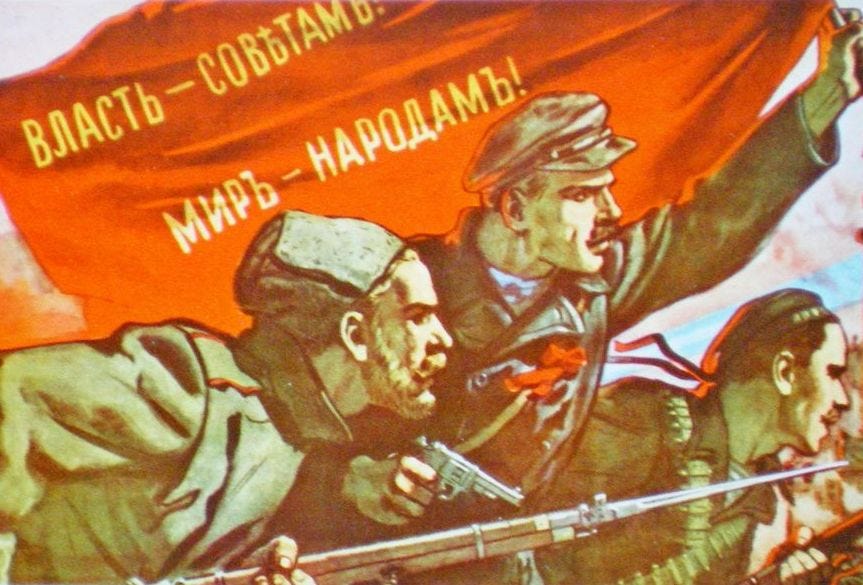
Does any of this sound familiar? In the West, a dramatic expansion of a paternalistic government across the board seems to be taking place. This gets reinforced ideologically any time a major crisis happens when Americans tend to blame—and demand more from—the federal government, or when large corporations rely on massive bailouts seeking socialized solutions while also desiring privatized profits. Thus, we increasingly see the role of government as being to intervene to make our lives better, just as we were conditioned to view the Communist Party in the USSR. If successful, this will change the culture and the popular perception of what normal looks like. The more power is relinquished by citizens, the more the government controls—and the less freedom we find ourselves enjoying down the road.
The Collective Over the Individual. This core value flows directly from prioritizing class identity over reason and paternalistic government over individual freedom. The individual exists for the benefit of the state, not the other way around. The upshot was supposed to be a classless society of justice and prosperity for all.
How this played out in real life: In reality, the collective best of the Soviet people (talent, labor, innovation, money, etc.) was invested into things that did not benefit the Soviet people, rather it consolidated the power, prestige, and status of the Communist Party. As Soviet citizens, we could brag about sending the first satellite and first man into space and about having some of the most sophisticated war technology. Yet, at the same time, we could not produce a decent car, washing machine, or television. To add insult to injury, the average citizen would wait for years to even able to purchase a bad soviet car or a refrigerator. I witnessed one of the most surreal examples of this while visiting family in East Berlin and crossing into West Berlin. It felt like crossing from a black-and-white movie to a Technicolor movie. The same German people, culture, and engineering that produced cars like Audi, Mercedes-Benz, and BMW in the West, somehow could only produce the atrocious East German Trebant that made the Russian Lada look like a Mercedes-Benz. Surreal does not begin to describe this contrast. Similarly, thirty years later, we can witness the dramatic difference between North and South Korea, offering a similar insight into the fruit of the collectivist Marxist ideology.
Does this sound familiar? Western democracy, although imperfect and messy, has the government of and for the people at its core. This has proven to be a precious and fragile thing. The overused example of Germany in the blink of a historic eye descending into an evil state with the support of a hypnotized people is still worth mentioning as a cautionary tale. When supporting all sorts of collectivistic solutions becomes the expected “moral duty” for citizens, and those with any opinions to the contrary are shunned or censored - we’re in trouble. I believe this is happening and it is deeply concerning.
Central Planning. From the aforementioned ideological dimensions emerges the disastrous idea of central planning. To provide fair and guaranteed distribution of goods and services, a government agency can make better decisions for the obedient majority of citizens than the citizens could make for themselves. The production and distribution of everything from food and clothes to electronics and shampoos were planned by a special ministry and distributed through a network of state-owned stores. What could possibly go wrong?
How central planning played out in real life: We had regular food shortages, atrociously bad clothing, electronics, and other consumer goods. The basics were provided and guaranteed, although severely limited in variety and quality, but that was pretty much it. This in turn led to a thriving black market of imported higher quality goods supported by entrepreneurs brave enough to risk jail time for simply buying and selling goods. Can you think of one thing in the West that was imported from Russia besides natural resources ( caviar, petroleum, minerals, timber), Vodka, and weapons?
For much of my childhood, my sister and I were raised by a single mom, and the only way for us to rise above bare subsistence living was to take advantage of our dual citizenship. We would buy electronics in the West and sell them at a profit in the USSR. My mom had the same entrepreneurial spirit that builds market economies — in the USSR, she could have easily been sent to jail. My mom is my entrepreneurial hero and I am deeply grateful. At one point we lived in a communal apartment, later we had a tiny one-bedroom apartment. I slept in the kitchen, and this was common for most families. Through our entrepreneurial efforts, we upgraded to a two-bedroom apartment on the outskirts of Moscow. We had a Western brand TV set, cassette player, and later, the magical VCR. My sister and I had a few pieces of western clothing and my mom had a Russian car. That was the extent of our “wealth” and yet for the USSR we were upwardly mobile.
In 1989, Boris Yeltsin was given a tour of a Randall’s grocery store in the US. He wrote about this experience: "When I saw those shelves crammed with hundreds, thousands of cans, cartons, and goods of every possible sort, for the first time I felt quite frankly sick with despair for the Soviet people. That such a potentially super-rich country as ours has been brought to a state of such poverty! It is terrible to think of it." Two years later, Boris Yeltsin left the Communist Party and began making reforms to turn the economic tide in Russia.
Does this notion of central planning sound familiar? Hopefully not directly as of yet, but it is important to note that the core idea that the few can make better decisions for the many is not just gaining traction but is being actively implemented at unprecedented speed in the West. Those of us who both studied and experienced Marxism can see this happening as clear as day and wonder why more people aren’t pushing back.
Normalized Fear of the State. Lenin introduced an official state-sponsored policy of “Red Terror” which gave birth to “Cheka,” the predecessor of the KGB. This may seem like a tyrannical invention, but it was how Lenin and his successors implemented their vision of the eventual classless society of justice and prosperity for all. The Bolsheviks were convinced that when you’re cooking up the proverbial utopian omelet, you’ll have to break some eggs in the process. The goals justify the means.
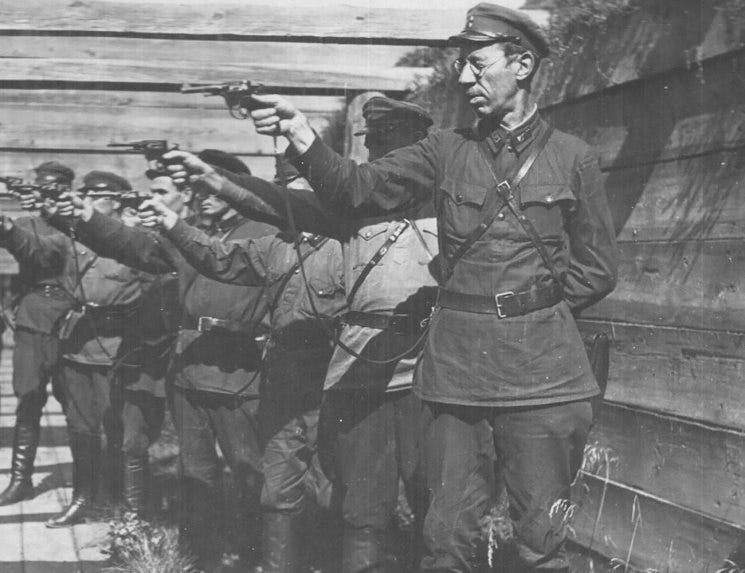
How fear of the state played out in real life: A little-discussed fact is that Stalin, Lenin’s successor, was responsible for the deaths of more people than Hitler, mostly his own people. The intensity of the Red Terror later subsided, but not the nature of state-sponsored violence, intimidation, and oppression, that produced the death, misery, and imprisonment of millions. A nation can be traumatized to the point of psychological paralysis just as a human being can. Fear of the state became a normal part of life. Echoes of normalized fear of the state were everywhere a generation after The Great Purge. When VCRs made their way into the black market in the 80s, so did movies (copies of copies) of American action films that did not present the USSR in the best light: for example, Stallone’s Rambo and Rocky, as well as White Nights starring Soviet-defector ballet superstar Mikhail Baryshnikov.
I was one of the few early and fortunate owners of a VCR. We would meet at Metro stations to trade video tapes with each other. That was the only way to watch a new movie. We wrapped them in newspapers to cover the forbidden titles. Fear of the state was ubiquitous, normal, and common, whether one was being pulled over by the police for something minor or visiting a government office to get a signature. It was an unspoken understanding that we exist for the state, not the state for us. In some ways, this cultural DNA still plagues Russia and is a growing sentiment in the US.
Normalized Mediocrity. Since the collective is the main beneficiary of the system, individuality, innovation, out-of-the-box thinking, and entrepreneurship were suppressed. After all, we existed for the state, not the state for us. The goal was the implementation of communism’s grand vision of a society in which inequity and poverty disappeared. So, is that what happened?
How normalized mediocrity played out in real life: Meritocracy, which rewards individual effort, talent, and initiative, was nearly non-existent. Upward mobility existed to a degree. After all, someone had to run the state-controlled machinery of central planning in all areas of life, from hospitals to universities. Imagine a country, or rather a block of countries, run with the efficiency and excellence of your local DMV. You can now imagine how much innovation, original thinking, and experimentation was going on. When it did occur, it was in spite of the reality on the ground, not because of it. As a result, most people didn’t dream of starting a business; no one could own one. Instead, many aspired to make a career as a bureaucrat in a government agency, which would offer advantages in social status and access to special stores of imported goods reserved for the “inner circle.”
Truly original thinkers were usually in trouble one way or another. In fact, the mastermind behind the Soviet space program, Sergey Korolev, ended up being falsely accused and spent some time in a Gulag before his colleagues petitioned for him by appealing to his abilities as a brilliant engineer. Boris Pasternak’s literary masterpiece Doctor Zhivago was censored in the USSR only to be published in the West. Pasternak won the Nobel Prize for this work, but after an intimidation campaign from the KGB, he was forced to decline the honor. There are thousands of stories like this. Innovation, original thinking, creativity, and entrepreneurship—the very drivers of human civilization—were systematically suppressed. Can you imagine what that does to a culture after a generation or two?
After college, I started dreaming of a career as an entertainer. Yet it was clear that only the short list of government-approved artists would get access to TV and radio with no independent media of any kind in existence. The short period of freedom of the press in the 90s is the only reason why I gained national recognition through purely free market forces. No money, connections, or government ties, just hard work and music that people happened to like. This had been an absolute impossibility in Soviet times. There I was, a dark-skinned, bi-racial, singer with foreign and rebellious-sounding Pop/RnB songs picked up by a nascent free press, radio, and TV without any permission from the state — distributed by a privately owned local record label. I entertained millions on TV and radio, performed concerts in sports arenas all over the former USSR, and sold untold numbers of albums (most of them were pirated by numerous illegal music producers and distributors.) My hit song Our Generation was later used by the Boris Yeltsin campaign as an anthem against the Communists’ big comeback. It is not a coincidence that the 90s offered an explosion of original work by journalists, writers, filmmakers, and musicians. Normalized mediocrity was temporarily suspended and almost overnight we saw a flourishing of creative activity in every field. Sadly, most media was monopolized by the state again by the early 2000s.
If conformity and groupthink become essential for thinkers, scientists, writers, comedians, filmmakers, political leaders, and artists to succeed, what will happen to innovation, progress, and the very vitality of the West?
The Severe Limiting of Individual Freedoms. Limiting individual freedoms comes naturally to an unelected elite looking to consolidate absolute power as it worms its way into the everyday lives of common people. So, just how valuable is it to have robust freedom?
Here are some examples of how limited freedom played out in real life: You could live in Moscow with its limited opportunities (and yet more than in the provinces) only if given permission via a registration document called “Propiska.” You also needed a stamp or signature by one or several bureaucrats in order to get a phone landline or to go on vacation, among other things. You could not leave the country without an exit visa. Almost no one could visit a Western country, although some people could be granted permission to visit an ideologically aligned Socialist bloc country. If you had displeased the state, you could be blacklisted as “Nevyezdnoi” (barred from travel) with no hope to be granted an exit visa. I recommend watching the movie “White Nights” starring Gregory Hines, Mikhail Baryshnikov, Helen Mirren, and Isabella Rossellini. Another hilarious and accurate comedy is Moscow on Hudson about a defector musician played by Robin Williams. Both of these are as informative as they are entertaining.
I happened to have dual Soviet/Chilean citizenship and could go anywhere I wanted, which I did to the envy of my peers. Incidentally, it is my access to Western pop, hip hop, and RnB music that gave me the competitive edge as an entertainer years later. As the demand for this sort of music skyrocketed in post-soviet Russia, I happened to be pretty good at it.
Does government overreach of this kind sound familiar? In the US, we’re seeing increased use of the rationale that Uncle Sam knows better, and it’s for your own protection. Limiting freedoms “for the common good” is a natural result. The question is, how much of this limitation of freedom is, in fact, for the common good? And precisely how much does Uncle Sam really know better about? Are large scale government driven actions that override the ability of citizens to choose really for our own good? How many examples do we see in history where reversing government overreach is easy?
Why We Must Pay Attention.
Why does Marxist ideology still capture the imagination of so many? Because it resonates with our deepest desires for a community. An un-fallen, fair society separate and distinct from the world of greed, oppression, and pain. Ironically, Marxism taps into our deeply spiritual collective longing for Eden. Reimagining it as within reach, man-made, and replacing God with god-like rulers. It also unsuccessfully attempts to force bottom-up community through top-down collectivization, forgetting that authentic community is achieved organically. The word ideology, coined by French philosopher Destutt de Tracy to mean the science of ideas, was actually popularized by Marx after his published work entitled The German Ideology. It became omnipresent in the 19th century and mutated in meaning to signal a systematic doctrine of interpreting the world from a strictly human, derived from the senses, perspective.
In other words, Marxist ideology is appealing to humans because it is actually more like a religion. And as any false religion or cult - it ultimately disappoints and destroys. A false religion demands a god which, in turn, inevitably produces the cult of personality. It is surreal, but true that today, thirty years after the fall of the Soviet Union, through similar ideological tactics, a cult of personality can still be maintained. According to Levada Center, an independent pollster, a record high of 70% of Russians approve of Joseph Stalin’s role in history. This is up from 38% in the early 2000s. Don’t miss this - Stalin’s popularity is rising, not falling. This is why we must pay attention.
Was there anything good about living in the USSR? Yes, and it was the people. A creative, heroic, and long-suffering people and culture. They laughed, worked, fell in love, had babies, and cared about each other. Some of the most remarkable inventors, writers, filmmakers, composers, dancers, and engineers in the world came out of the USSR. Sadly, many of them got recognition and acclaim only in the West, not in their own land.
For what it’s worth, this article is merely an attempt to share my personal experiences and insights, not to stump for a particular political party. I am actually fairly apolitical and am not trying to advocate for a party, system, or ideology. All human systems are flawed to one degree or another. I do advocate, however, for a society where we each have the freedom to choose, to speak, to believe, to move about and shape our own future without oppressive interferences. I believe all of these freedoms are ultimately diminished by the very essence of Marxist ideological DNA, which tends to persist even when it’s spun into or called something else.
I have many socialist-leaning friends, including beloved members of my extended family. Many of them would make a case for an evolved socialism and an argument based on something the philosopher Heraclitus once said, “No man ever steps in the same river twice, for it’s not the same river and he’s not the same man.” Meaning that times are different, people are different, and the ideas have been refined. My aspiration here is to show the source of this particular river to be toxic. This means that even if the proverbial people, times, and waters are different, the ideological source of this river tends to be destructive and incompatible with human flourishing.
Of course, it is also very human to choose paths that lead to harm, as long as we have the freedom to choose, and, sadly, sometimes it’s the only way we learn.
As for me and my household, we’re not going back.

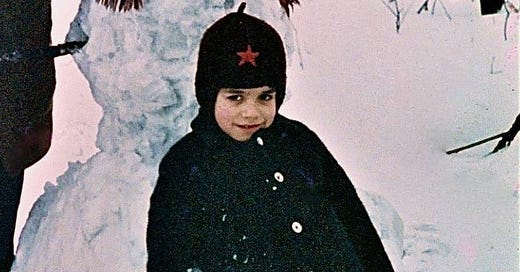



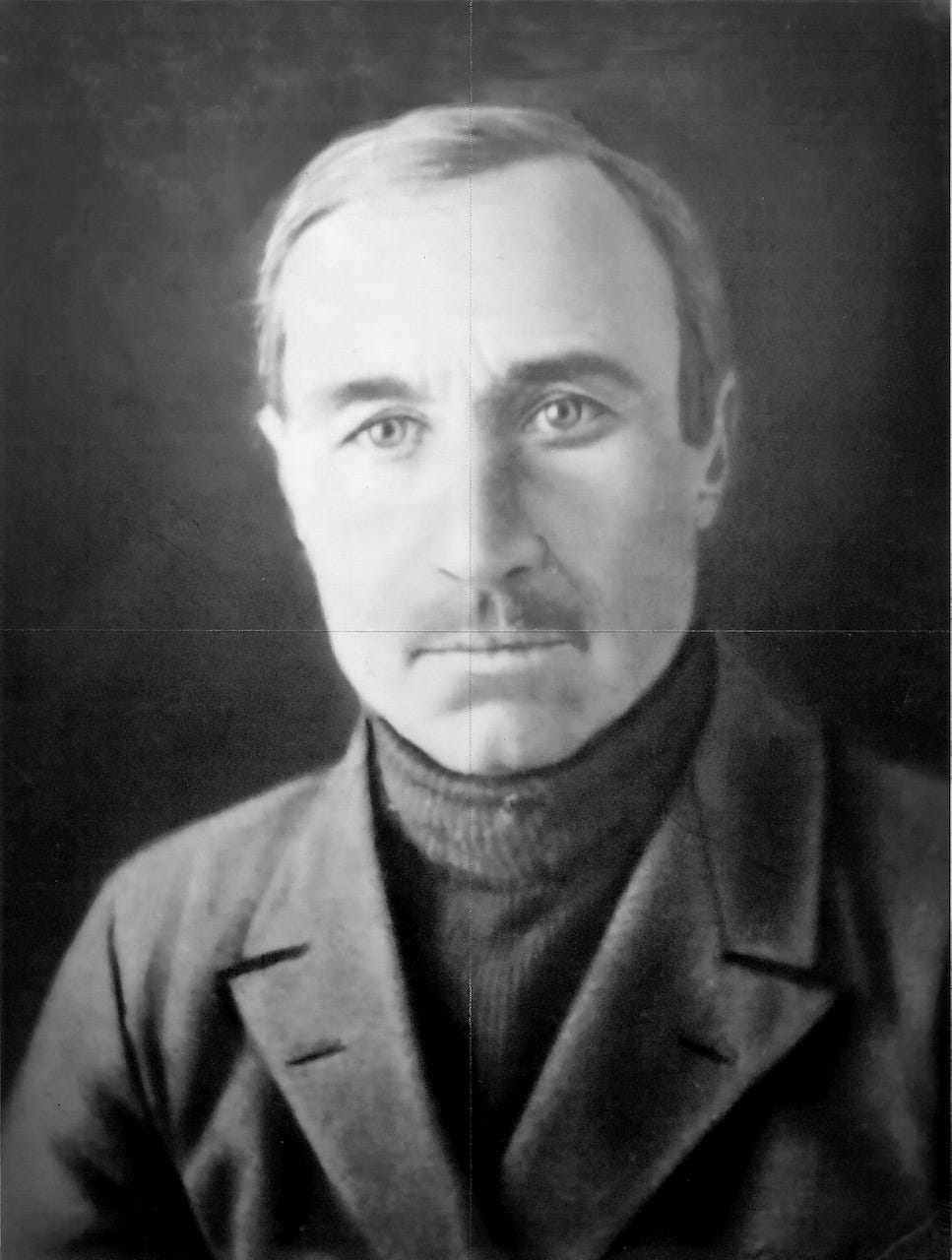
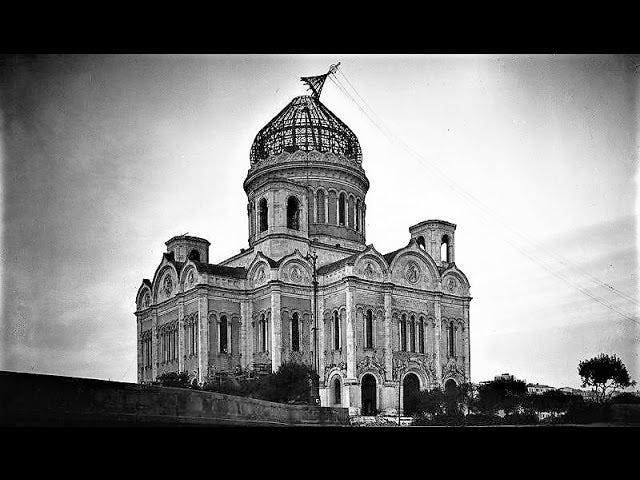
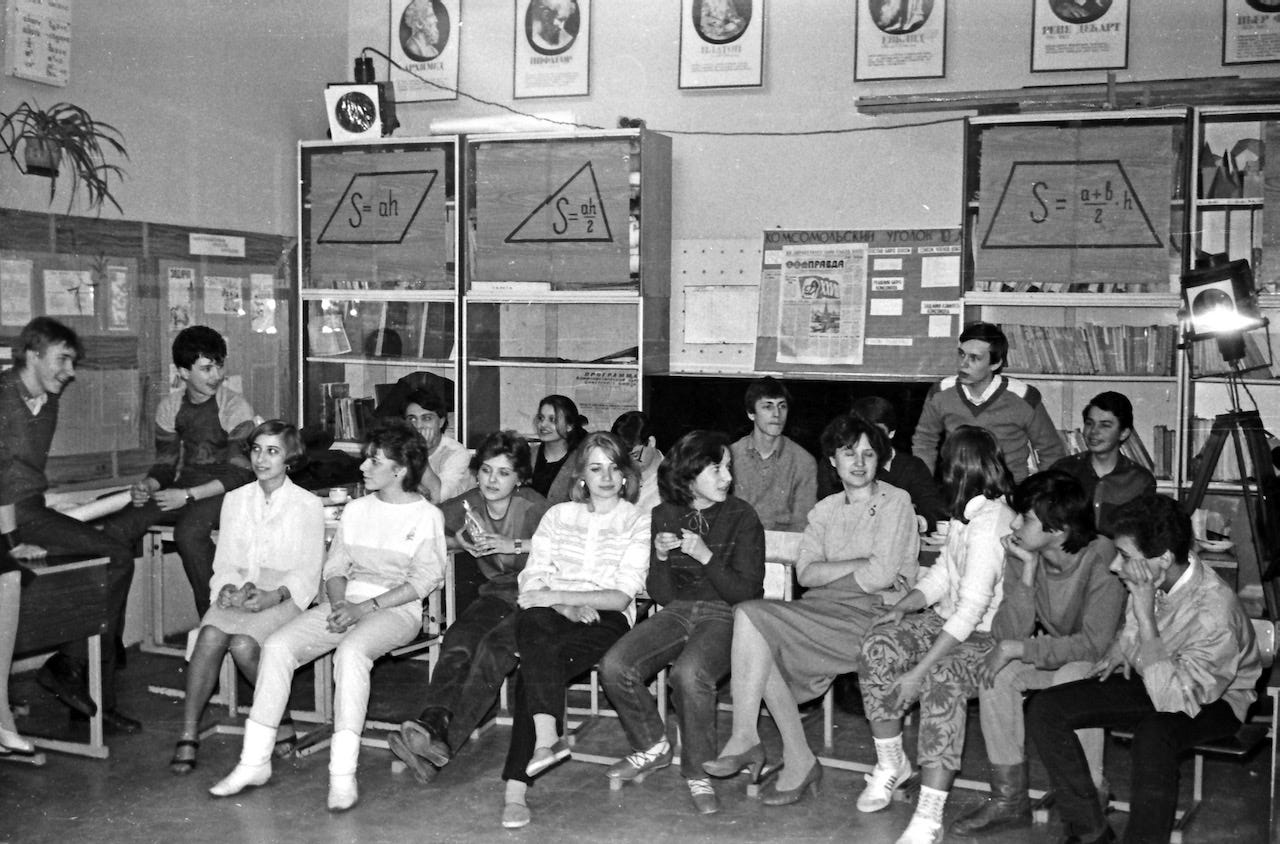
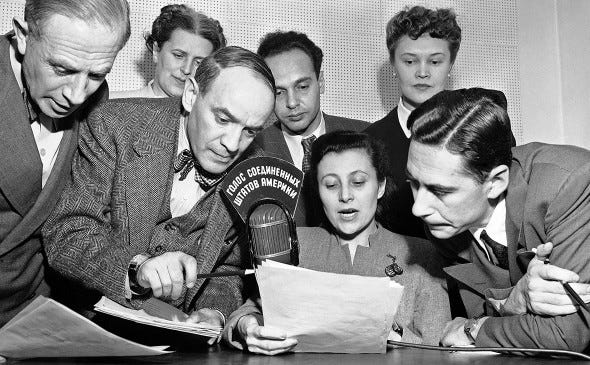

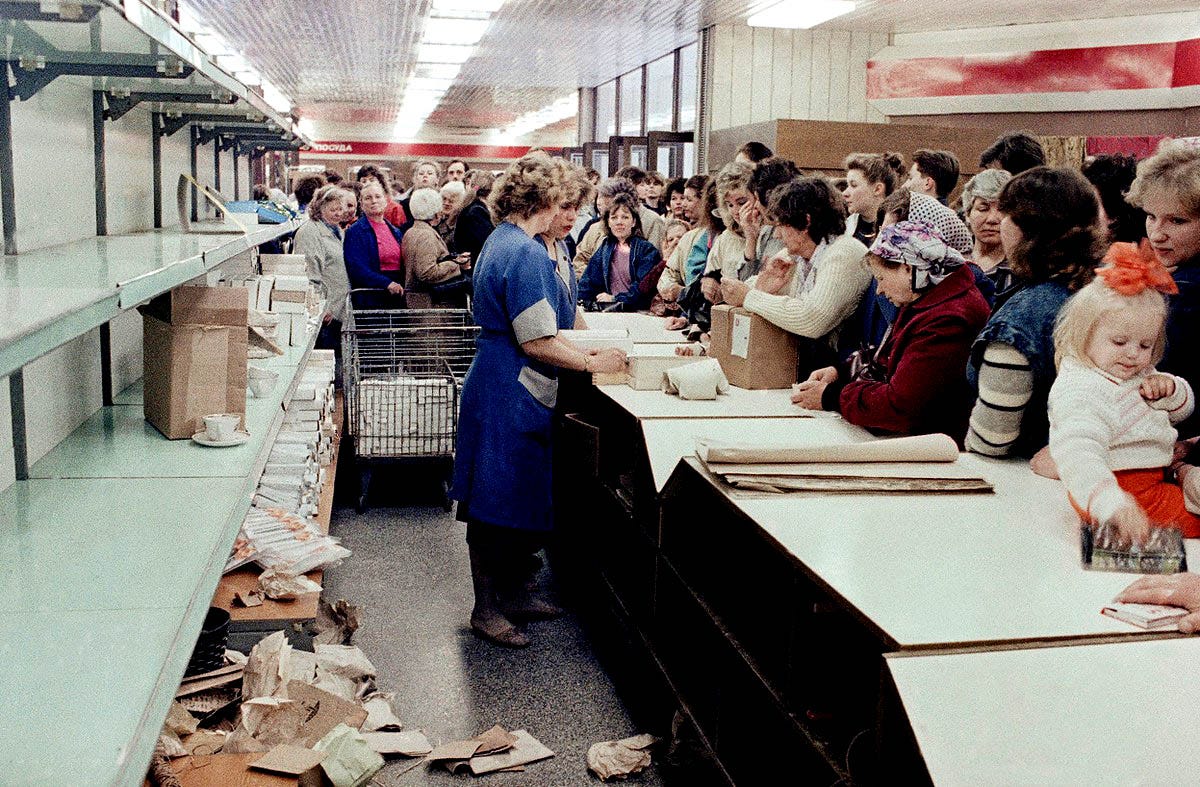

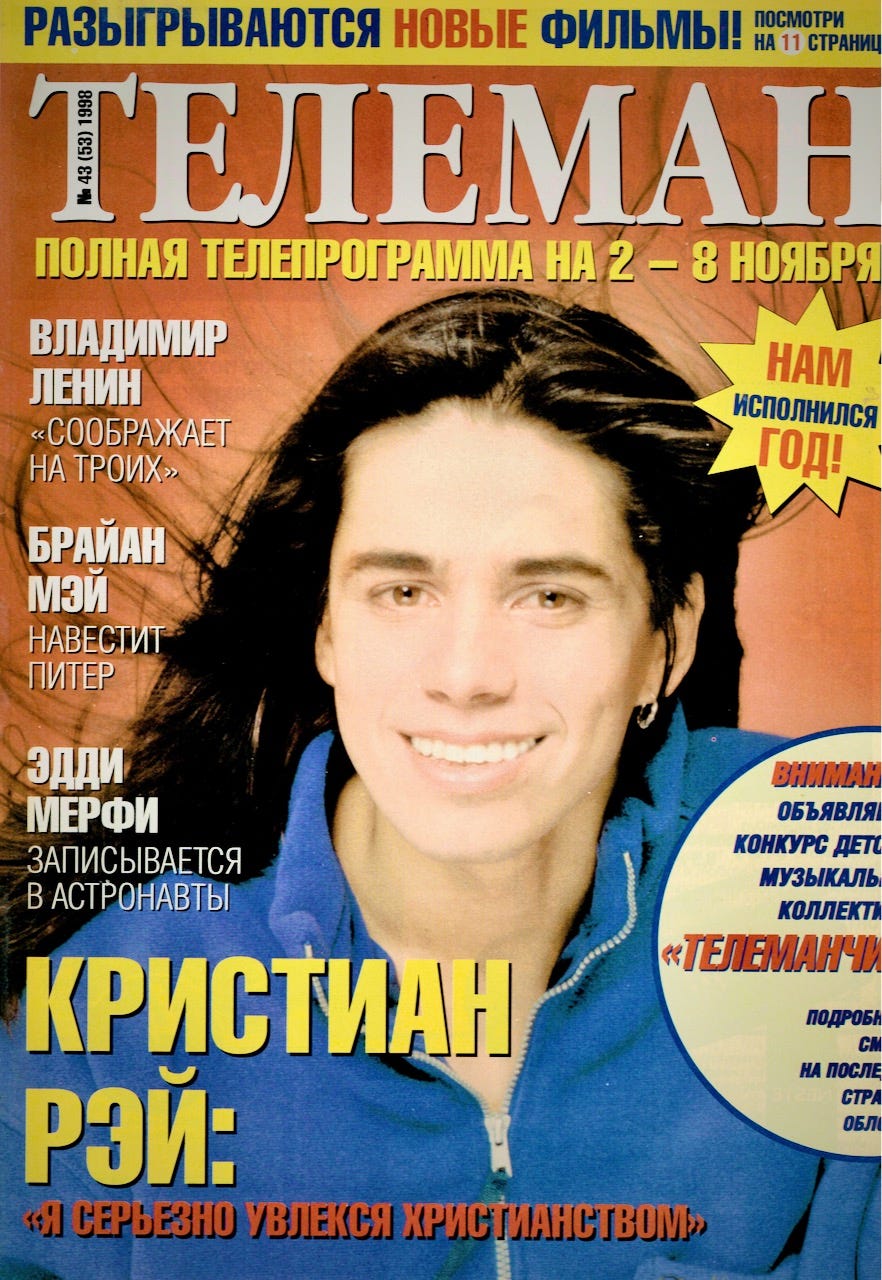
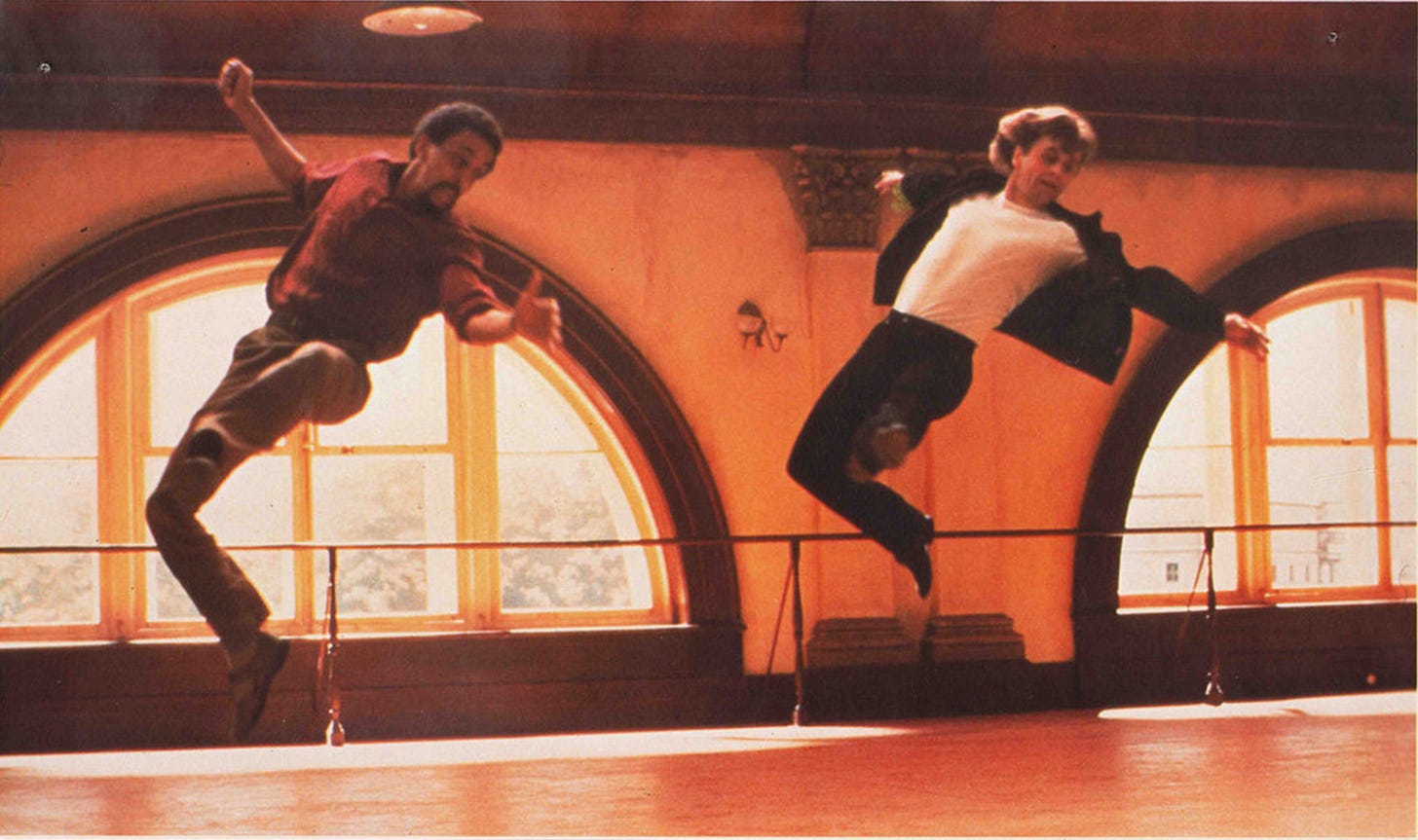
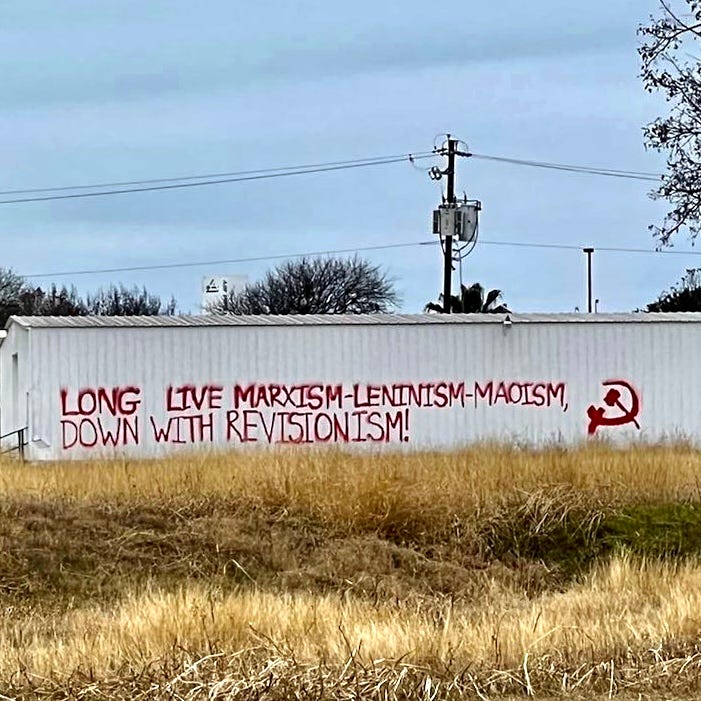
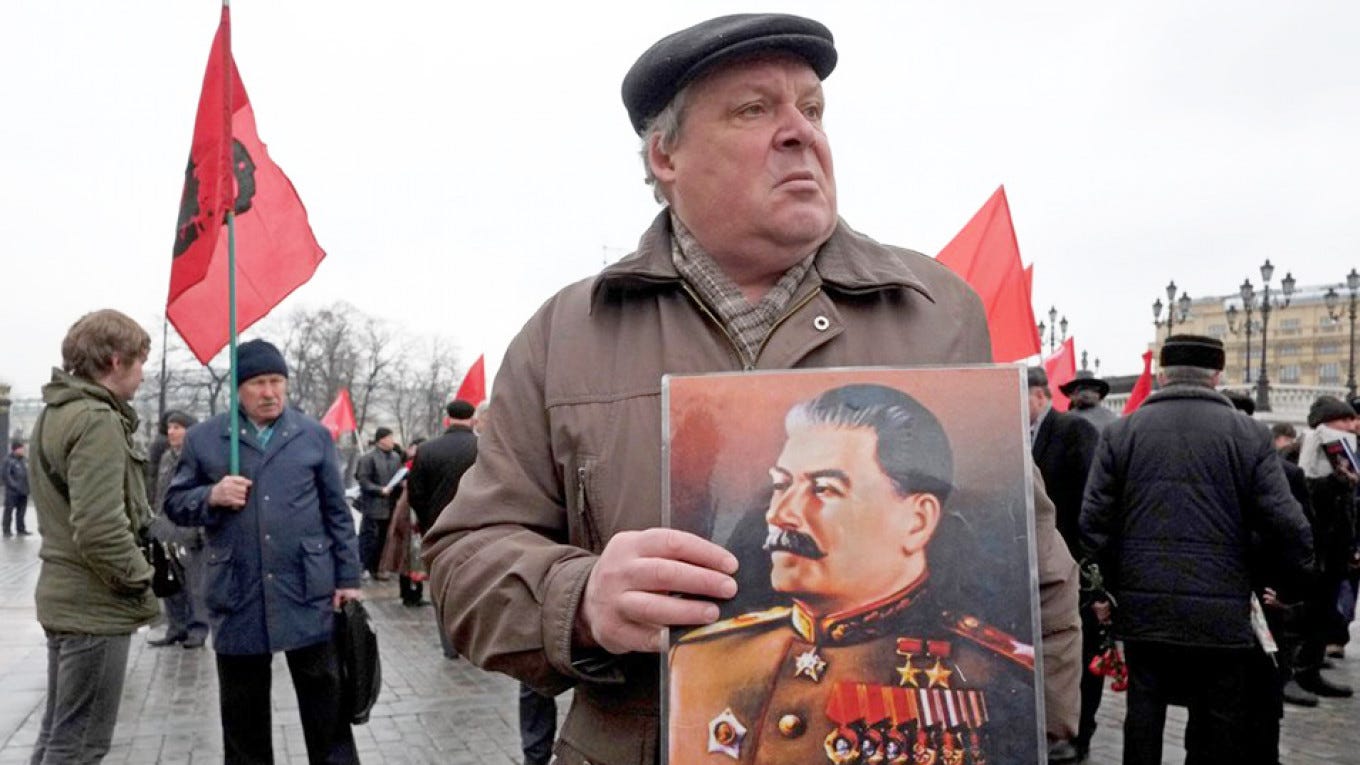

This is an excellent article. I'll be sharing. I know exactly what you are talking about seeing the difference between East and West Germany. I crossed that former border a year or so after the wall came down. It was as if something had sucked all the color from everything there in the East. That was all I needed to see to understand the failures of communism. Thanks for sharing your personal perspective.
This needs to be a book. You have a unique and valuable perspective!